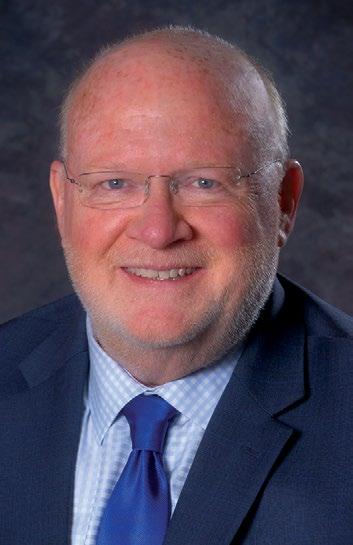
3 minute read
Not Business as Usual
by ROX Media
Pandemic-Caused Breaches of Contract
By David A. Fitzgibbons III
Force majeure, “acts of God” and the “doctrine of impossibility” are among the old or seldom-used legal concepts in modern times that can provide a defense for breach of contract – but the bar for those defenses is set very high.
With the COVID-19 pandemic having forced many Arizona businesses to significantly change their operations to avoid shutting down, many business owners are left to resolve how they will be able to keep up with their existing contractual obligations.
In the wake of the pandemic, an old legal term that attracts new attention is force majeure – a concept that, depending on whether and how it is defined in a contract, can provide relief for a party that finds itself unable to hold up its end of the bargain.
Under a force majeure (or “superior force”) clause in a contract, a party to the contract may be relieved of its obligation to perform when circumstances beyond the party’s control (for example, a pandemic) have rendered per formance impossible or legally impracticable.
It is important to note that force majeure is not a general concept that kicks in when overwhelming circumstances prevent a party from performing. Rather, it is a specific provision that, to be enforceable, generally must define what constitutes a “superior force,” what events would trigger the provision, the remedies available to both parties, and how a party would be excused from its obligations. Certain clauses list specific conditions that will be considered a force majeure and relieve a party of some or all of its contractual obligations. Other force majeure clauses are drafted more broadly, leaving more flexibility to include, for example, a pandemic.
The contract might contain specific notice provisions that a party is required to honor in the event of a force majeure or other anticipated inability to comply with the contract. The contract might also require arbitration of disputes arising from the failure to perform.
Finally, a party seeking to be excused from performance under a force majeure provision must demonstrate that it exhausted all reasonable means of compliance with the contract. Parties should carefully document any alternative means of compliance that were considered and the reasons they were either rejected or found to be impossible or impracticable. Both parties may be challenged to show that there were no ways they could have lessened their damages. Also, specific to COVID-19, if you seek relief, you might even need to show that you properly and timely applied for a Paycheck Protection Program loan (or other government assistance) and that either your application was rejected or the assistance received was inadequate. Again, this determination will be very fact-specific and made on a case-bycase basis.
Non-Contractual Defenses
Even if a contract does not have a force majeure clause, a party’s obligation to perform may still be discharged under the “doctrine of impossibility.” The doctrine refers to situations when it is physically impossible for a party to a contract to perform.
If your contract is silent on the parties’ rights and obligations in times of crisis, various affirmative defenses may be available to you, such as “commercial impracticability” or “frus tration of purpose” due to governmental acts.
Courts have generally held that it is against public policy to require a party to continue to attempt performance when a subsequent gov ernment regulation or ordinance has made that performance illegal or practically impossible.
Your non-contractual defenses might include “act of God” protection. Under Arizona law, an “act of God” defense requires complete exclusion of any human act or “human agency” from the cause of the loss.
As noted above, whether an inability of a party to perform a contract will be legally excused depends to a great extent on the specific facts and contract. If you find yourself in this position, we would be happy to discuss and work through your contract with you.
David Fitzgibbons is a senior partner at the Fitzgibbons Law Offices in Casa Grande (520- 426-3824).






